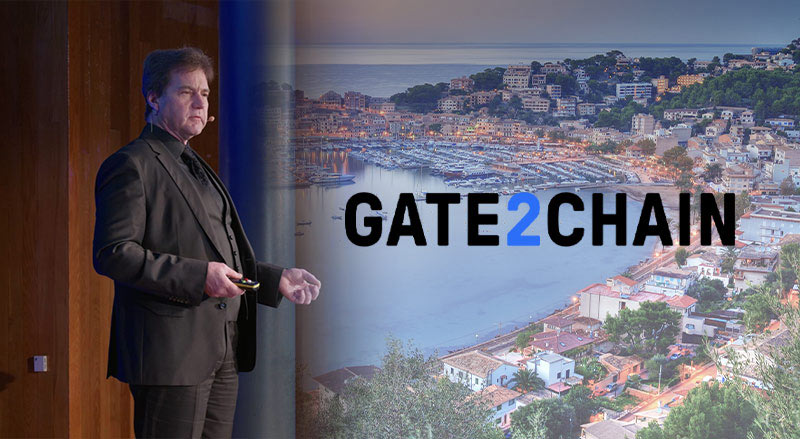At the recent Blockchain, Tourism and the Future of the Internet Event in Mallorca, Dr Craig S. Wright, Chief Scientist of nChain, held a keynote address about Bitcoin as an electronic cash system and its utility for the tourism sector.
Wright explained how Bitcoin handles identity and ownership privately and securely and showcased a concrete use case for the tourism industry.
Wright began his address by referring to the very basics that constitute Bitcoin. He argues that Bitcoin is a capitalist medium, as opposed to hoarding or mercantilism, which in a way reappeared through the HODL mentality. He further explains that Bitcoin is about individual ownership and rights within society established through governmental institutions.
The goal of Bitcoin is not to facilitate illegal activities, but to create a system where changes are recorded and monitored, he said. Bitcoin provides transparency through its ledger. However, Dr Wright also emphasises that privacy as an individual can still be maintained within a derivative ownership system.
He compared Bitcoin to cash, stating that cash transactions are already monitored and recorded, but Bitcoin offers more privacy in transactions due to the ability to use unique keys for each transaction.
Identities, digital signatures, and Bitcoin
Dr Wright also expanded on the concept of identity and privacy in transactions using Bitcoin. He noted paying in cash at a coffee place allows for anonymity, as the company doesn’t know the identity of the customer.
However, in other scenarios, identity is important, such as dealing with airlines or making complaints. Wright explained that blockchain technology allows for identity to be ‘firewalled’ from the blockchain, meaning it can exist without being publicly visible.
Wright also discussed the unique properties of Bitcoin, such as the Elliptic Curve Digital Signature Algorithm (ECDSA), which allows for the generation of new keys for each transaction, providing added privacy.
Provably demonstrating ownership
Another concept is the importance of provable ownership in transactions, especially when dealing with high-value items like cars or houses. Wright noted that in cases of small amounts, such as a lost €20 note, people usually don’t go to court to prove ownership. However, for valuable assets, ownership becomes crucial.
He gave the example of lack of ownership being a problem in slums in countries like Mumbai, where people may live for years without being able to prove ownership of their dwellings. Wright highlighted the need for a simple and low-cost way to record ownership, citing examples of adverse possession laws in some countries that can help establish ownership after a certain period.
Streamlining the tourism industry
Having established what Bitcoin is and how it works as an electronic cash system, Wright explains how Bitcoin can provide utility in the sector of tourism. He discussed the importance of keeping tourism fees down and developing a consumer relationship, while also maintaining the privacy and security of consumer information.
He further highlighted how Bitcoin allows for overlay networks and SPV (Simplified Payment Verification) to index large amounts of data while keeping it private.
He emphasises the need for not everything to be public and the importance of micropayments for securing information without incurring high costs. This includes the potential use of payment channels for settling transactions periodically to minimise costs.
Smart card-based mobile wallets
To finalise his address, Wright detailed an ideal use case for the tourism industry by nChain. It is a smart card-based mobile wallet that is a digital wallet that is stored on a smartphone. This system allows for secure and private transactions through the use of biometric smart cards and blockchain technology.
This system allows for a complete identity system that satisfies AML/KYC regulations. Tourists benefit from transparent and inexpensive services, while service providers benefit from customer retention, new revenue streams, and better margins.
